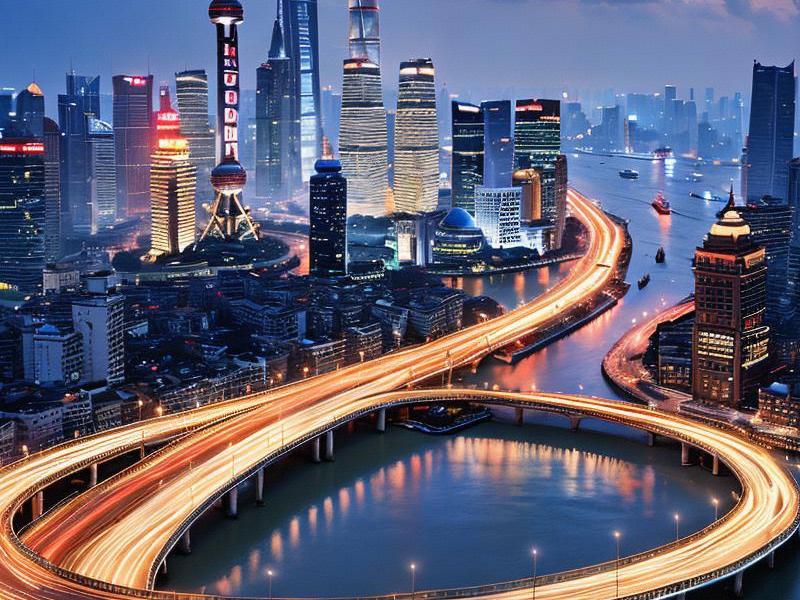
Shanghai, the largest city in China, is a vibrant metropolis that seamlessly blends tradition with modernity. Known as the "Pearl of the Orient," Shanghai has long been a symbol of China's economic and cultural dynamism. Over the past few decades, it has transformed from a sleepy port town into one of the world's most influential cities, attracting millions of visitors and investors from around the globe.
The city's economic prowess is evident in its skyline, dominated by iconic skyscrapers such as the Shanghai Tower, the Jin Mao Tower, and the Oriental Pearl Tower. These architectural marvels are not just symbols of Shanghai's economic might but also reflect the city's ambition to be a global financial hub. The Shanghai Stock Exchange, one of the largest in the world, and the bustling Pudong Financial District are testaments to the city's financial clout.
Shanghai's economic success is not limited to finance. The city is a major center for trade, manufacturing, and technology. Its port, the Port of Shanghai, is the busiest container port in the world, handling billions of tons of cargo annually. This logistical prowess has made Shanghai a critical node in global supply chains, facilitating the movement of goods between Asia, Europe, and beyond.
In recent years, Shanghai has also emerged as a leader in innovation and technology. The city is home to numerous high-tech enterprises, research institutions, and startups. Zhangjiang Hi-Tech Park, often referred to as "China's Silicon Valley," is a hub for biotechnology, information technology, and new materials research. This focus on innovation has positioned Shanghai as a key player in China's drive towards becoming a global leader in science and technology.
夜上海419论坛 Culturally, Shanghai is a melting pot of traditions and modernity. The city boasts a rich history that dates back thousands of years, with evidence of human settlement found as early as the Neolithic period. During the Ming and Qing dynasties, Shanghai grew into a bustling trading port, attracting merchants from all over China and beyond. This historical legacy is reflected in the city's architecture, cuisine, and cultural heritage.
The Bund, a historic waterfront area, is a showcase of Shanghai's colonial past. Once the financial center of foreign concessions, the Bund is lined with grand buildings in various architectural styles, including Gothic, Baroque, and Romanesque. These structures, built in the early 20th century, stand as a testament to the city's historical significance and architectural diversity.
In contrast, the Yu Garden, a classical Chinese garden, offers a glimpse into Shanghai's traditional culture. Built in the Ming Dynasty, the garden features meticulously landscaped ponds, rockeries, and pavilions, providing a serene escape from the hustle and bustle of city life. The adjacent Yuyuan Bazaar is a vibrant marketplace where visitors can sample traditional Chinese snacks, shop for handicrafts, and immerse themselves in the local culture.
Shanghai's cultural scene is not limited to its historical landmarks. The city is home to numerous museums, theaters, and art galleries that celebrate its rich cultural heritage and contemporary art scene. The Shanghai Museum, one of the largest and most prestigious museums in China, houses an extensive collection of Chinese art, including ancient ceramics, calligraphy, and paintings. The museum's impressive architecture, designed by the renowned architect I.M. Pei, is itself a work of art.
上海龙凤419油压论坛 The city's theater scene is equally vibrant, with the Shanghai Grand Theatre and the National Centre for the Performing Arts (NCPA) hosting world-class performances. These venues showcase a wide range of cultural events, from traditional Chinese opera and ballet to contemporary theater and music concerts. The NCPA, often referred to as the "Egg," is a landmark architectural achievement that has become a symbol of Shanghai's cultural aspirations.
Shanghai's culinary scene is another highlight of its cultural identity. The city is renowned for its diverse and sophisticated cuisine, which reflects its history as a trading port. From the spicy flavors of Sichuan cuisine to the sweet and sour dishes of Jiangsu cuisine, Shanghai offers a culinary experience that caters to all tastes. The city's night markets, such as the Nanxiang Steamed Bun Restaurant and the Yuyuan Bazaar, are popular destinations for food lovers seeking authentic local delicacies.
In addition to its economic and cultural achievements, Shanghai is also a leader in urban transformation and sustainability. The city has implemented numerous initiatives to address environmental challenges and improve the quality of life for its residents. The construction of the Maglev train, the world's fastest commercial train, has revolutionized transportation in the city, providing a fast and efficient way to travel between Pudong International Airport and the city center.
上海品茶论坛 Shanghai has also invested heavily in green infrastructure and sustainable development. The city's parks and green spaces, such as Century Park and Zhongshan Park, provide residents with opportunities to enjoy nature and engage in outdoor activities. The city's commitment to sustainability is reflected in its efforts to reduce carbon emissions, promote renewable energy, and improve waste management.
The ongoing urban transformation of Shanghai is evident in its ambitious infrastructure projects. The Hongqiao Integration Zone, a major transportation and business hub, aims to connect the city's airport, railway stations, and business districts through a network of high-speed trains and highways. This project is expected to enhance the city's connectivity and boost economic growth.
Another significant project is the development of the Xiong'an New Area, a state-level new area located near Beijing. While not directly in Shanghai, this project reflects the broader national strategy of promoting regional development and reducing the economic disparity between coastal and inland areas. Shanghai's expertise in urban planning and infrastructure development is playing a crucial role in the success of this initiative.
In conclusion, Shanghai is a dynamic metropolis that exemplifies China's rapid modernization and global integration. Its economic prowess, rich cultural heritage, and commitment to innovation and sustainability make it a unique and influential city on the world stage. As Shanghai continues to evolve, it remains a symbol of China's aspirations and a beacon of hope for a prosperous and harmonious future.
